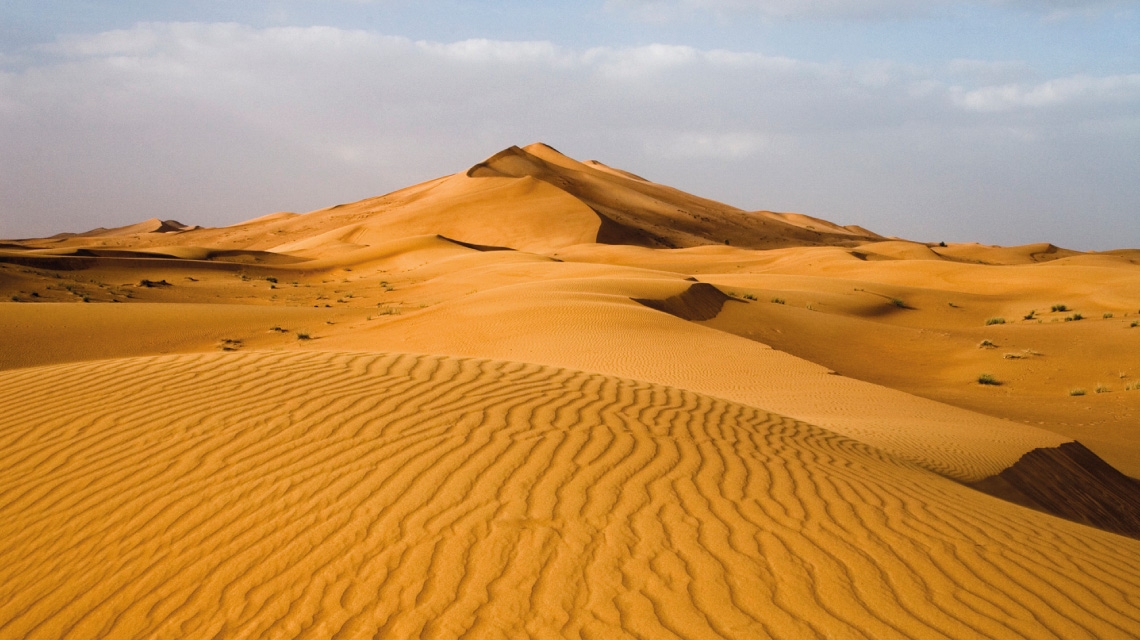
By Dr Hector Hernandez
May 26, 2013
When we think of vibrant biodiversity, the Amazonian jungles, the American Great Plains and the vast oceans come to mind.
And for good reason. They are a prime source of pharmaceuticals, nutritionals and biomass for energy products.
It is for that reason so many of us support efforts to prevent deforestation in the rainforests and overfishing in the oceans.
That global support has helped countries such as Brazil, the United States and Australia implement strict legislation to prevent the export and exploitation of their natural biodiversity by foreigners for commercial purposes.
India and many other developing nations have also set limits on which biodiversity samples can be exported.
But in our part of the world, there is still a perception that the desert is a barren place, and thus, does not need protection.
In fact, Abu Dhabi and the UAE have a unique and unexplored environment full of natural diversity that is only found in the Arabian Peninsula.
From the oil rich salicornia plants that thrive in the UAE’s stark saltflats, to the nourishing and medicinal ghaf trees that survive in the dunes, our coasts, desserts, wadis, and sabkhas have evolved unique and potentially useful plants and animals, most of which have yet to be discovered.
This unexplored potential is even more important given the UAE’s mandate to become more sustainable and prosperous.
Among the unassuming dunes we might find a species that provides us with greater food security, or maybe in our oases we could find a plant that can reduce our dependence on fossil fuels.
There is a wealth of unknown potential for the development of new bio-based renewable and sustainable industries, and preliminary exploration efforts have already begun.
The Marine Research Centre in Umm Al Qaiwain is studying compounds made from sea grass and corals for medicinal and pharmaceutical uses.
Fujairah, too, has opened a research station at Wadi Wurayah Mountain Protected Area to study the natural biodiversity of the freshwater wadi.
Meanwhile, researchers at UAE University are looking for anti-cancer and antimicrobial compounds found in native UAE plants. It is currently working to isolate a compound from a plant extract that shows promising initial results stopping the growth of cancerous cells.
In my own laboratory at the Masdar Institute of Science and Technology, we are investigating the microbes and algae that live in the desert as a source of biofuels.
We have isolated several native microbial species and algae, which we are characterising in the laboratory. This work has led an Emirati student, Ahmed Al Harethi, to file a patent on an isolate of one native algal strain – AAH001 – with the US patent and trade office.
All these initial findings hint at the hidden potential for the development of intellectual property that will provide the base for new entrepreneurial opportunities for the UAE.
But all this work will be for nothing if there is no legislation that protects our natural biodiversity from being exported and used in other places around the world without our consent.
The UAE, through the Environmental Agency Abu Dhabi, has established guidelines on how to protect our environment to preserve our biodiversity for the future generations.
There is no formal legislation, however, preventing the export of our most precious natural resources. It is our hope that the UAE will soon join the ranks of nations like the US and Costa Rica, and put in place laws and limits to ensure its irreplaceable natural wealth is protected.
The desert and the ocean have always been a key part of the UAE’s history. They have provided food and substance for our past generations. With proper care and stewardship, the bounty hidden in their depths can bring sustainable and renewable prosperity to a new generation of UAE citizens.
Dr Hector Hernandez is an assistant professor of chemical engineering at the Masdar Institute of Science and Technology.